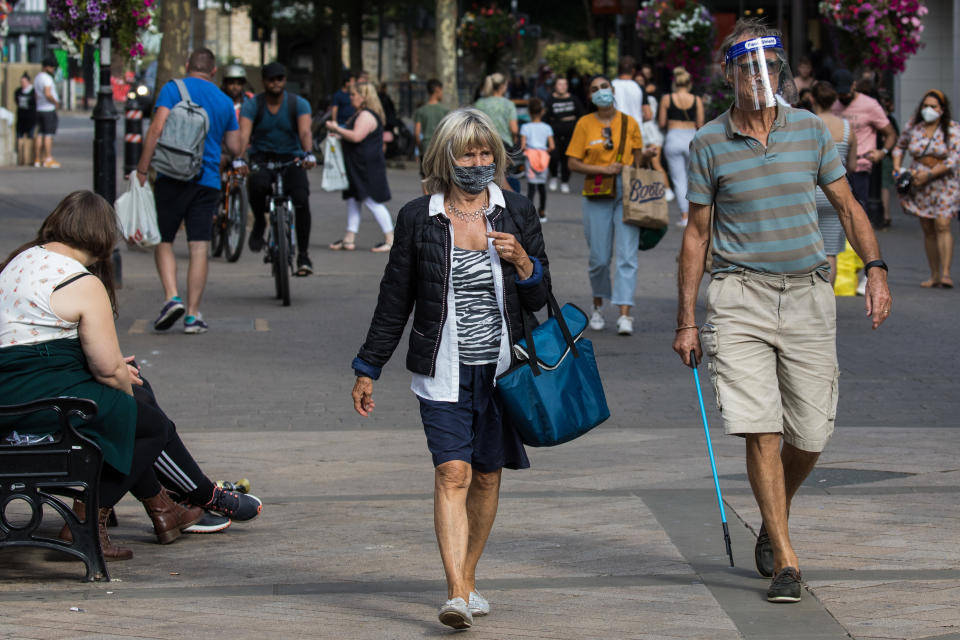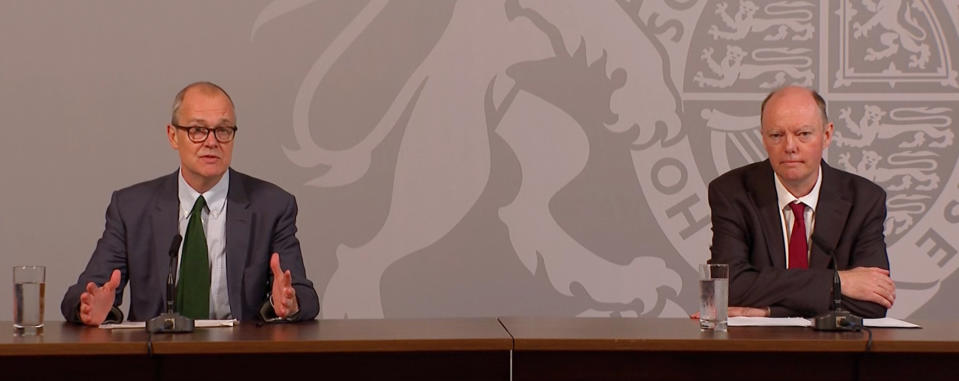'It’s not someone else's problem, it’s all of ours': Four things we must do to fight winter coronavirus spike
Watch: Professor Chris Whitty warns that UK public must take collective responsibility for combating spread of COVID-19
Britons must take collective responsibility for combating the spread of coronavirus, England’s chief medical officer has warned.
In an address to the nation on Monday, Professor Chris Whitty said: “This is not someone else’s problem, this is all of our problem.”
He said there are four specific things that people can do to prevent COVID-19 from spreading further.
During the same Downing Street briefing, the government’s chief scientific adviser Sir Patrick Vallance said there would be 50,000 new daily coronavirus cases by 13 October if current trends continue.
He said this would in turn lead to 200 new deaths per day by the middle of November.

The scientists also laid out the five biggest warning signs that coronavirus could get much worse this winter.
Boris Johnson spent the weekend considering whether to introduce a second coronavirus lockdown in England. He is reportedly contemplating a two-week mini lockdown, according to the BBC.
On Sunday, there was a backlash following reports the government will lift the rule of six for 24 hours on Christmas Day to allow families to see each other.
On Monday, Prof Whitty said: “What we’re seeing is a rate of increase across the great majority of the country. It is going at different rates but it is now increasing.
“And what we’ve found is, as we go through in time, anywhere that was falling is now moving over to beginning to rise and then the rate of rise continues in an upwards direction.
“So, this is not someone else’s problem, this is all of our problem.”
There are four ways we can help prevent a winter coronavirus spike, he said.
1. Reduce our risk

Prof Whitty said this meant continuing to wash our hands, wear face masks and keep our distance from others.
He said: “You cannot in an epidemic just take your own risk.
“Unfortunately, you’re taking a risk on behalf of everybody else. It’s important that we see this as something we have to do collectively.”
2. Isolate the virus
People with coronavirus must self-isolate, Prof Whitty said, to reduce its circulation.
His comments follow the government’s introduction of fines of up to £10,000 for those who fail to quarantine.
Health secretary Matt Hancock has said he would report a neighbour to police for breaking COVID-19 self-isolation rules.
3. Break social links
Prof Whitty said people must “break unnecessary links between households”.
This means avoiding contact with friends and family, as well as reducing contacts at work.
“The third one, and in many ways the most difficult, is that we have to break unnecessary links between households, because that is the way in which this virus is transmitted,” he said.

“And this means reducing social contacts whether they are at work, and this is where we have enormous gratitude to all the businesses for example who have worked so hard to make their environments COVID-secure to reduce the risk, and also in social environments.
“We all know we cannot do this without some significant downsides.
“This is a balance of risk between if we don’t do enough the virus will take off – and at the moment that is the path we’re clearly on – and if we do not change course we are going to find ourselves in a very difficult problem.”
4. Support science

Investment in drugs to treat COVID-19 patients and in the development of vaccines is required to combat the spread, said Prof Whitty.
“We will be living with this virus and we will continue to do so, but good progress that has been made on vaccines, several are in very late stages of clinical testing,” he said.
"There is increasing evidence that a vaccine could be possible before the end of this year, we've got to get on and control this in order we can live with it and protect health and society overall."
Watch: How is coronavirus treated?
Coronavirus: what happened today
Click here to sign up to the latest news and information with our daily Catch-up newsletter



